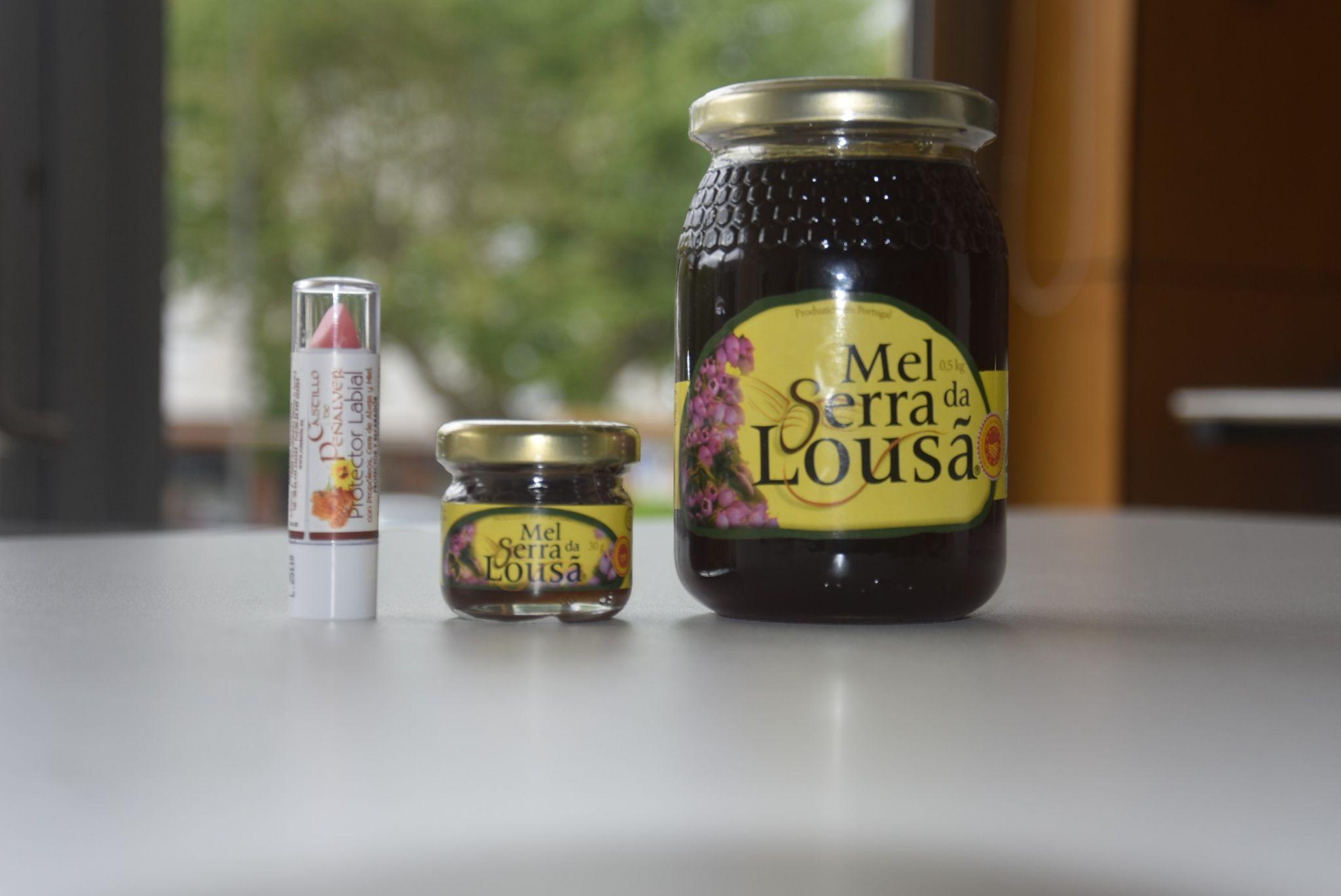The sweet taste of dark honey with hints of chestnut and the urze flower has been one of the main pillars contributing to Lousã’s agriculture. Beekeeping presents an ancient tradition which originates from the valleys and mountains of Serra da Lousã. The honey is very particular as it is produced by the species Apis Mellifera Iberica, and also the bees main food source is the Erica umbellata, which actually can be tasted in the honey. Beekeepers can be found all across the country. Established in 1988, the association Mel Serra da Lousã has more than 450 members from 10 municipalities, namely Lousã. These groups of people are working for the same goal in a sustainable way.
Invasive species make it harder
In October 2017, there was a fire that hit Lousã, burning about 44000 hectares. Due to the fire, the seeds of invasive species such as acacias, which had been accumulated for several years, were spread. Chestnut trees were also burnt, an essential source of food for bees. That led to a decrease in their quantity, essential for the pollination of several plants, one of them being Erica umbellata, known by the common name heather.
Even though the eucalyptus tree is not considered invasive by some experts, it is in some aspects very harmful. The tree is planted throughout Portugal with the intent of producing paper. After the trees are cut down the invasive acacia plants start spreading extremely fast, reducing space for flowers like Erica umbellata which are favored by the bees. Consequently the bees have less space and conditions to thrive and prosper. Young Eucalyptus and acacia themselves do not produce any flowers, which means they are not suitable for the bees.
Wasps as a dangerous predator
Since 2011, the North of Portugal has been the target of an asian wasp named Vespa Velutina, an appearance that has been expanding over the years. It is known to be a predator of a large number of insect species, especially the Iberian bee. However, it is possible to prevent and control Vespa Velutina, through the method of burning the swarm’s nest, introducing pesticides or placing traps. These methods cannot always be used or achieved effectively, as the wasps make their nests in high trees. In the case of traps, which are made of plastic, these cannot completely solve the problem, as they are having a visual impact and the wasps do escape at times. Uncontrolled installation of traps and destruction of nests of other species of wasps is harmful to the biodiversity, mainly pollinating insects. Due to the side effects caused by captures massive and uncontrolled, it is recommended to use traps if there is strong predation in apiaries.
Killing these predators with insecticides, that is common worldwide, might be an effective method, but it brings a problematic dealing with dangerous chemicals for bees. It should not be forgotten that all the substances used for prevention contaminate the honey, which is hazardous for human’s health, too.
It must not be excluded that bees in general are not just workers for the production of honey, however without them our diets would be at risk. Since without bees there is no pollination, which prevents the development of plant biodiversity, their decrease might lead to its loss.
Despite the problems, beekeepers continue to be an activity on the rise and people who are involved in this activity are linked to sustainability principles. When speaking with Ana Paula Sançana, executive director of Lousãmel, she emphasized: “Beekeeping is not done only for profit but for the love of sustainability and bees.”



